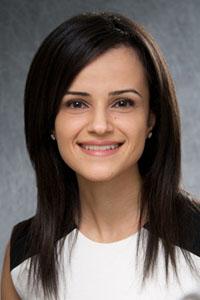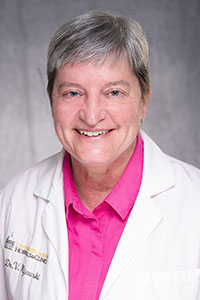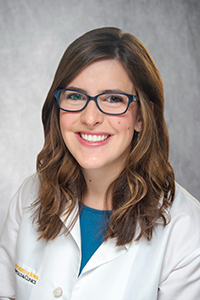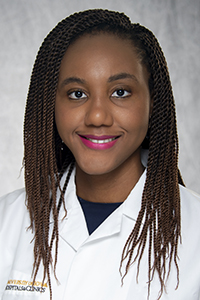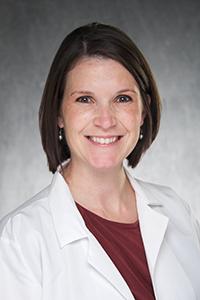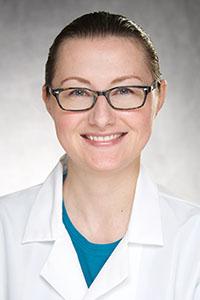Allergy-Immunology
Over the course of the rotation, residents work with faculty physicians in an outpatient setting to gain experience in caring for patients with acute and chronic allergic and immunologic disorders. The rotation includes exposure to a wide spectrum of diseases, including allergic rhinitis, chronic rhinosinusitis, asthma, urticaria, angioedema, eosinophilic disorders, food allergies, and insect sting reactions, as well as a spectrum of immunodeficiency disorders. Furthermore, the resident gains experience with procedures such as allergy testing, allergy immunotherapy, and drug and food challenges.
Cardiology - Outpatient
Residents work weekdays with various assigned faculty physicians in an outpatient clinic. In the clinic, residents learn the finer points of long-term management of patients with a broad variety of cardiovascular disease. Residents may also spend time in electrophysiology clinic, gaining experience with the indications and management of implantable devices. Additionally, time is also scheduled for residents in the echocardiography lab so that residents can learn advanced interpretation of echocardiograms.
Cardiology - Inpatient
A faculty physician, a senior resident, and two junior residents diagnose and manage patients with acute cardiovascular illnesses that are not qualified for the cardiovascular intensive care unit, including acute coronary syndromes, decompensated heart failure, valvular disease, pulmonary hypertension, pericarditis, and endocarditis. The team admits patients daily, with no overnight call for team members. Overnight admissions are managed by non-teaching hospitalist teams and are not added to the teaching team census.
Cardiovascular Intensive Care Unit
A faculty physician, cardiology fellow, and four senior residents manage manage up to 16 acute cardiac patients whose conditions include cardiogenic shock, myocardial infarction, and aortic dissections. Each resident takes overnight call every fourth night.
Dermatology
Residents see patients with faculty physicians in an outpatient setting to gain experience in caring for patients with a variety of diseases that include malignant and pre-malignant skin lesions, acne, rashes, and allergic skin disorders. Residents will also encounter patients with dermatologic manifestations of systemic illness. The resident will become familiar with common procedures used in dermatology, including skin scrapings, punch and shave biopsy, and cryotherapy.
Emergency Room - University of Iowa Hospitals & Clinics
Residents spend four weeks in the emergency room at University of Iowa Hospitals & Clinics. They are supervised by faculty physicians from the Department of Emergency Medicine and participate in every aspect of emergency room medicine with the exception of Level I trauma.
Emergency Room - Veterans Affairs Medical Center
Residents work in the emergency room at the Veterans Affairs Medical Center. They are supervised faculty physicians from the Department of Internal Medicine and evaluate a variety of acute complaints that range from minor musculoskeletal injuries and chronic back pain to chest pain, sepsis, and stroke.
Endocrinology
Residents spend four weeks in endocrinology, including one week on endocrine consults and three weeks in the endocrine clinic. During this rotation, residents gain experience with diabetes management, thyroid disorders, pituitary disorders, adrenal disorders, and learn the intricacies of osteoporosis and disease of the bone. Residents may also spend time in the polycystic ovary syndrome clinic, the lipid clinic, and the renal stone clinic. Residents rotate through the diabetes education and diabetes nutrition clinics to acquire experience with the aspects of diabetes self-care that may not be sufficiently emphasized in clinic.
Gastroenterology
Based on personal interests, residents have the opportunity to tailor their outpatient gastroenterology clinic experience. Residents may work in clinics that specialize in general gastroenterology, general hepatology, transplant hepatology, hepatitis C, motility disorders, and inflammatory bowel disease. Residents also have the opportunity to rotate with the inpatient liver and gastroenterology consult teams, if desired.
Geriatrics and Palliative Care - Outpatient
Residents spend two weeks in the geriatric clinic and two weeks on the palliative care consult service during this one-month rotation.
In addition to treating common medical problems, residents in the geriatric clinic gain confidence managing a variety of challenges unique to the geriatric population, including cognitive impairment and dementia, urinary and bowel incontinence, gait, falls and balance disorders, and polypharmacy. Off-site nursing home rounds educate residents about the facilities to geriatric patients are commonly referred.
On palliative consult service, residents learn the intricacies of end-of-life care. As a member of the consult team, residents may facilitate family meetings, assist a patient and their family with clarifying goals of care, and recommend treatments that maximize patient comfort.
Hematology-Oncology
A faculty physician, senior resident, and two junior residents diagnose and manage patients with a wide range of hematologic and oncologic conditions. A clinical pharmacist supports the team in the administration of chemotherapy. The team admits patients daily, with no overnight call for team members. Overnight admissions to the team census are supported by a night float senior internal medicine resident and intern.
Infectious Diseases Consultation Service
A faculty physician, fellow, and two to three residents provide consultative services for inpatients hospital-wide on a variety of known or potential infectious illnesses including HIV management, tuberculosis, endocarditis, meningitis, wound infections, osteomyelitis, vector-borne illnesses, and fungal infections.
Internal Medicine-Psychiatry Unit
Faculty physicians, a senior resident, and two junior residents care for up to 15 patients with medical and psychiatric illness. The team admits patients daily, with no overnight call for team members. Overnight admissions to the team census are supported by a night float senior resident and junior resident.
Internal Medicine - University of Iowa Hospitals & Clinics - Inpatient
Three teaching teams (each consisting of one faculty physician, one senior resident, three junior residents, and two to three medical students) diagnose and manage adults of all ages and backgrounds with a wide range of medical illnesses. Support staff (social workers, nurses, and unit clerks) assist with discharge planning and arranging follow-up appointments. Junior residents rotate on overnight call when their respective teams are admitting patients, taking an average of four to five call nights per month.
Internal Medicine - Veterans Affairs Medical Center - Inpatient
Three teaching teams (each consisting of one faculty physician, one senior resident, and two junior residents) diagnose and manage a largely male population of veterans with conditions that span the full breadth of internal medicine. The team takes care of patients on the general inpatient unit and in the ten bed intensive care unit. Patients in the intensive inpatient unit are staffed with a pulmonary-critical care faculty and fellow during daily intensive care rounds. Each inpatient team admits daily, with a team cap of 14 and a junior resident daily cap of five. Each junior resident takes an overnight call every sixth night with a night float senior.
Medical Intensive Care Unit
A faculty physician, two pulmonary-critical care fellows, and four senior residents take care of up to 26 critically ill patients. Senior residents take overnight call every fourth night with a junior resident in the Medical Intensive Care Unit. Residents on overnight call admit patients, assist with cross-cover of patients on the intensive care unit, and participate in morning teaching rounds.
Neurology
Residents work with faculty physicians and residents from the Department of Neurology during this rotation. They spend four weeks on the inpatient consult service and four weeks in general and subspecialty neurology clinics. Outpatient case mix includes chronic migraines, neuromuscular disorders, sleep medicine, multiple sclerosis, amyotrophic lateral sclerosis, and stroke follow-up. Inpatient case mix ranges from myasthenia gravis crisis to evaluation of altered mental status and stroke. If a residents would like more exposure to stroke, they may request an additional rotation with the stroke inpatient service.
Pulmonology Consultation Service
Residents will work with one faculty physician and one pulmonology fellow to respond to consultations from both medical and surgical services on a variety pulmonary conditions. This may include hypoxemia and dyspnea of unclear etiology, pleural effusions, interstitial lung disease, severe chronic obstructive pulmonary disease and asthma, infiltrates/nodules in both immunocompetent and immunocompromised patients, lung masses/suspected malignancy, mediastinal adenopathy, and granulomatous diseases. Residents may participate in thoracentesis procedures and observe chest tube placement. Residents also have the opportunity to observe bronchoscopy procedures (including standard airway exams, bronchoalveolar lavage, biopsies under fluoroscopy and endobronchial ultrasound, and super-dimension navigational bronchoscopy).
Renal Consultation Service
A faculty physician, two nephrology fellows, and two to three residents provide consultative services for inpatients hospital-wide on a variety of acute and chronic problems, including acute kidney injury, end-stage renal disease, hemodialysis, continuous renal replacement therapy, lupus nephritis, and pulmonary-renal syndromes.
Rheumatology
Residents spend four weeks in rheumatology to gain experience in the evaluation and management of common clinical presentations including joint pain and swelling, muscle aches, musculoskeletal weakness, regional pain, and non-articular signs and symptoms of rheumatologic conditions such as Raynaud’s phenomenon and skin rash. Working closely with faculty physicians, residents diagnose and manage diseases including fibromyalgia, rheumatoid arthritis, osteoarthritis, and crystalline and infectious arthropathies, as well as systemic conditions like scleroderma, systemic lupus erythematosus, and various forms of vasculitides. Three weeks of this rotations are spent in an outpatient setting. One week of this rotation is spend on the rheumatology consult service.
Surgical Co-Management Service
Two faculty physicians and two to three residents provide internal medicine consultative services for surgical and psychiatric inpatients with acute and chronic medical problems. This rotation also includes outpatient pre-operative evaluations in a clinic setting.
 We invite you to consider the advantages of a program that:
We invite you to consider the advantages of a program that:

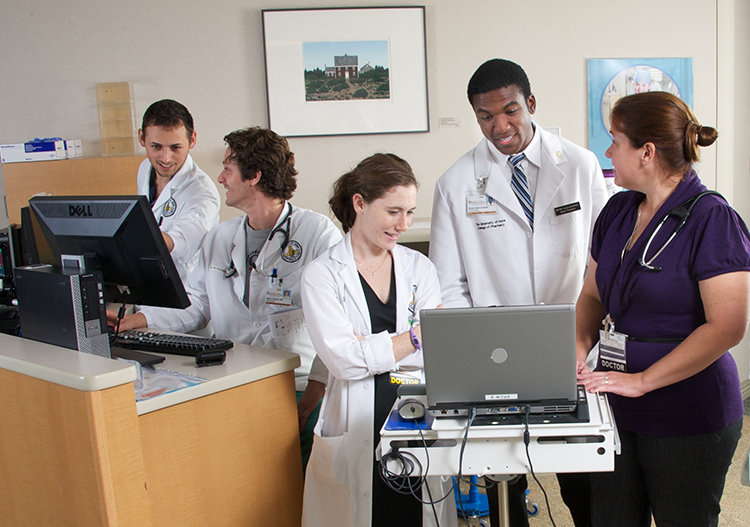 Our Internal Medicine-Psychiatry Residency Program aims to:
Our Internal Medicine-Psychiatry Residency Program aims to: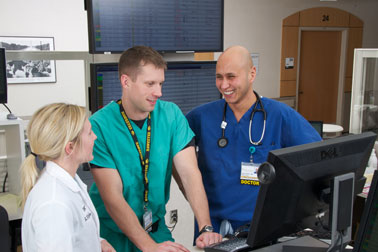 The second year of training is divided evenly between internal medicine and psychiatry.
The second year of training is divided evenly between internal medicine and psychiatry. The third year of training begins with a four-month block of rotations in internal medicine, after which the residents join their categorical psychiatry counterparts in the outpatient setting for next 12 months. Residents split their time in outpatient psychiatry between the Adult Psychiatry Clinic at the University of Iowa Hospitals and Clinics and the Veterans Affairs Medical Center. Residents also spend one half-day per week at the Community Mental Health Center for Mid-Eastern Iowa.
The third year of training begins with a four-month block of rotations in internal medicine, after which the residents join their categorical psychiatry counterparts in the outpatient setting for next 12 months. Residents split their time in outpatient psychiatry between the Adult Psychiatry Clinic at the University of Iowa Hospitals and Clinics and the Veterans Affairs Medical Center. Residents also spend one half-day per week at the Community Mental Health Center for Mid-Eastern Iowa.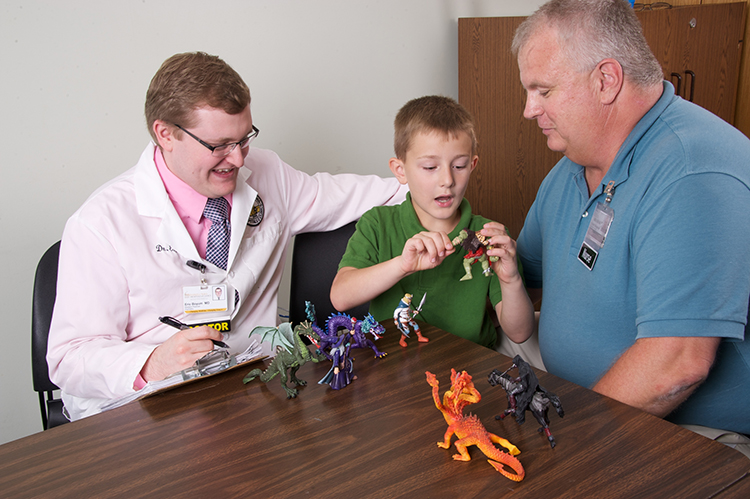 The fourth year of training begins with the last four months of outpatient psychiatry rotations. At the conclusion of this outpatient experience, residents will generally move to a rotation in the child and adolescent psychiatry unit at University of Iowa Hospitals & Clinics, which includes time in both inpatient and outpatient. After a two-month rotation in child and adolescent psychiatry, residents return to internal medicine rotations for the remaining six months of the year.
The fourth year of training begins with the last four months of outpatient psychiatry rotations. At the conclusion of this outpatient experience, residents will generally move to a rotation in the child and adolescent psychiatry unit at University of Iowa Hospitals & Clinics, which includes time in both inpatient and outpatient. After a two-month rotation in child and adolescent psychiatry, residents return to internal medicine rotations for the remaining six months of the year.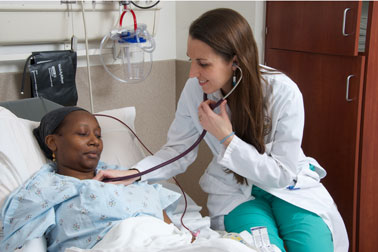 The fifth year of training is divided evenly between internal medicine and psychiatry, usually in 3-month blocks or 6-month blocks. This year includes time to complete any remaining rotations required for board eligibility in each specialty as well as time for self-designed electives (may include research).
The fifth year of training is divided evenly between internal medicine and psychiatry, usually in 3-month blocks or 6-month blocks. This year includes time to complete any remaining rotations required for board eligibility in each specialty as well as time for self-designed electives (may include research). Residents maintain a panel of patients in an outpatient setting through a Internal Medicine continuity of care clinic at University of Iowa Hospitals & Clinics or the Veterans Affairs Medical Center for all five years of training. Working as a team with faculty physicians, nurses, and medical assistants, residents provide comprehensive care to patients with an emphasis on chronic disease management. During inpatient psychiatry rotations, residents are scheduled for one half-day per week in their continuity of care clinic.
Residents maintain a panel of patients in an outpatient setting through a Internal Medicine continuity of care clinic at University of Iowa Hospitals & Clinics or the Veterans Affairs Medical Center for all five years of training. Working as a team with faculty physicians, nurses, and medical assistants, residents provide comprehensive care to patients with an emphasis on chronic disease management. During inpatient psychiatry rotations, residents are scheduled for one half-day per week in their continuity of care clinic. 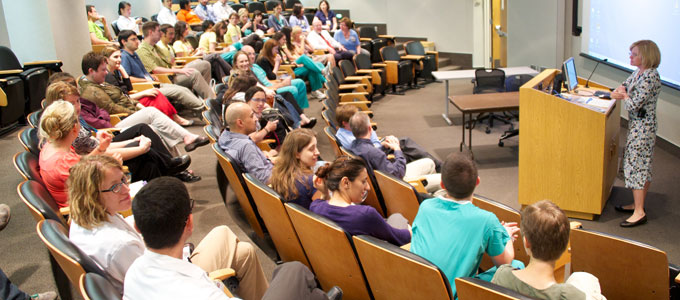 Along with numerous clinical experiences, residents in our combined training program attend an equally broad array of educational conferences. These conferences are attended based on a resident's current clinical assignment, so residents rotating in internal medicine attend internal medicine conferences and residents rotating in psychiatry attend psychiatry conferences. In addition to the categorical conferences, combined residents attend a monthly Journal Club that is specific to combined training.
Along with numerous clinical experiences, residents in our combined training program attend an equally broad array of educational conferences. These conferences are attended based on a resident's current clinical assignment, so residents rotating in internal medicine attend internal medicine conferences and residents rotating in psychiatry attend psychiatry conferences. In addition to the categorical conferences, combined residents attend a monthly Journal Club that is specific to combined training. Applications are only accepted through the
Applications are only accepted through the 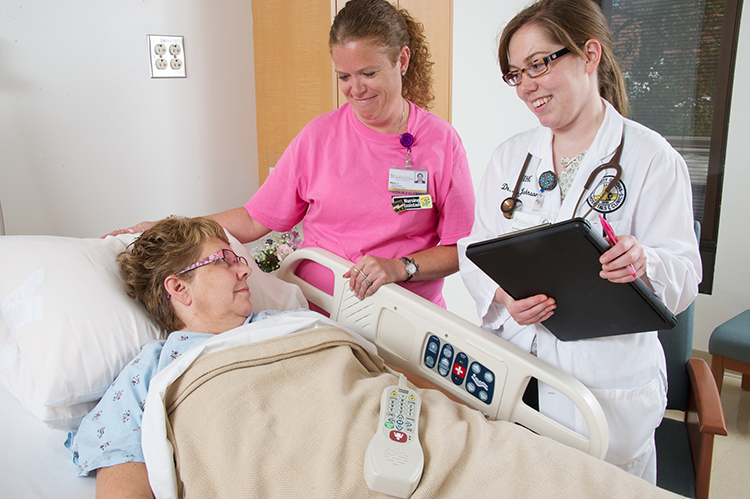 We're not usually ones to brag, but we think our people - from the heads of our departments to our newest interns - are a big part of what makes the Internal Medicine-Psychiatry Residency Program at University of Iowa Health Care great. If you are looking for a challenging and supportive training environment where you will be afforded the opportunity to work closely with like-minded, friendly, and dedicated people, then our program might just be the one for you. We hope to see you soon so that you can find out firsthand what our people have to offer your training.
We're not usually ones to brag, but we think our people - from the heads of our departments to our newest interns - are a big part of what makes the Internal Medicine-Psychiatry Residency Program at University of Iowa Health Care great. If you are looking for a challenging and supportive training environment where you will be afforded the opportunity to work closely with like-minded, friendly, and dedicated people, then our program might just be the one for you. We hope to see you soon so that you can find out firsthand what our people have to offer your training.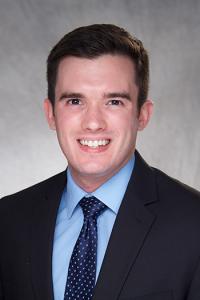
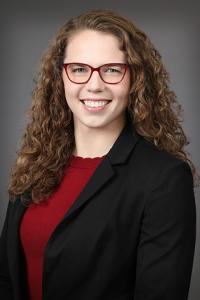

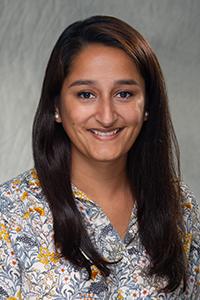
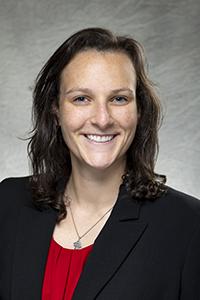
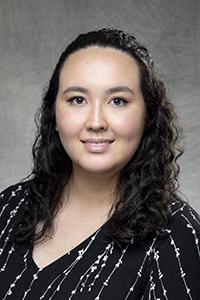
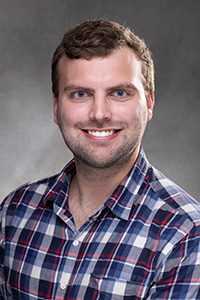
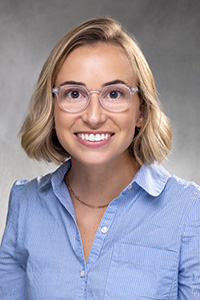


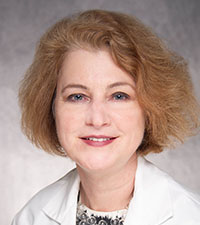 This is an extraordinary time in your life, a transition that marks the beginning of a crucial new period in your professional career and in your personal experience. When I went about interviewing for and choosing my residency, I was a bit anxious but mostly very excited. I knew it would be hard work, but I looked forward to the challenge as I am sure you do now.
This is an extraordinary time in your life, a transition that marks the beginning of a crucial new period in your professional career and in your personal experience. When I went about interviewing for and choosing my residency, I was a bit anxious but mostly very excited. I knew it would be hard work, but I looked forward to the challenge as I am sure you do now.
